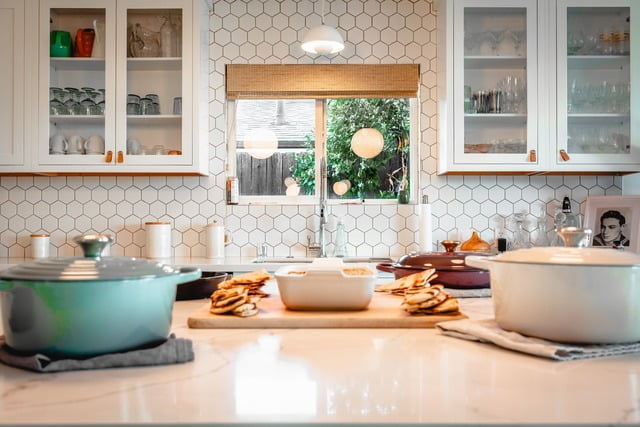The debate on gun ownership and safety is a contentious and widely discussed topic, with proponents and critics offering opposing views. It is vital to thoroughly examine the question of whether having a gun in the home improves safety by delving into studies, statistics, and evidence-based arguments. This blog post aims to provide a comprehensive analysis of the relationship between gun ownership and safety, shedding light on the various perspectives surrounding this issue.
Statistical data plays a crucial role in understanding the prevalence of gun ownership in households and its impact on home safety. By examining crime rates and contrasting studies, we can gain insights into whether guns truly enhance security within homes or if their presence poses additional risks. Moreover, exploring the benefits of having a gun in the home helps us understand why some individuals argue for their necessity as a means of protection and self-defense.
However, it is essential to consider the psychological factors associated with gun ownership as well. Beliefs in personal empowerment and security contribute to people’s decision to own firearms, but they may also have implications for mental health and fear levels within households. Additionally, examining accidental gun deaths and injuries highlights the risks posed by having a gun in the home, emphasizing the need for safe storage practices and education.
By exploring these different facets of the debate, we can delve into topics such as potential increases in violence due to firearms accessibility, including domestic violence incidents perpetuated by guns. We will also consider alternative strategies for home safety that do not involve firearms but offer effective alternatives such as security systems, self-defense classes, and community-based crime prevention programs.
This article intends to present readers with comprehensive information so they can critically evaluate arguments for both sides of this complex issue. Only through an evidence-based approach can we gain a deeper understanding of whether having a gun in the home truly improves safety or if alternative strategies are more effective at promoting security.
Statistics on Home Safety and Gun Ownership
One of the fundamental aspects of the debate surrounding gun ownership and safety is understanding the prevalence of gun ownership in households. According to a survey conducted by the Pew Research Center, about 30% of American adults reported that they own a firearm. This figure clearly represents a significant portion of the population, indicating that guns are commonly found in many homes across the nation.
When examining crime rates and the impact of gun ownership on home safety, contrasting studies emerge. Proponents argue that having a gun in the home can serve as a deterrent to criminals, ultimately enhancing safety for homeowners and their families. However, critics point to studies suggesting that firearm availability may actually increase the risk of violence or fatalities in certain situations.
It is essential to take into account both sides of this argument when considering statistics on home safety and gun ownership. While some studies suggest that having a gun in the home can decrease instances of victimization and provide a sense of security for homeowners, other research highlights potential risks associated with firearms, including accidental injuries, suicide rates, and domestic violence incidents.
By thoroughly examining these statistics, individuals can make informed decisions regarding gun ownership and its impact on household safety.
Statistics on Home Safety and Gun Ownership
- According to a survey by the Pew Research Center, approximately 30% of American adults report owning a firearm.
- Proponents argue that having a gun in the home can serve as a deterrent to criminals.
- Critics suggest that firearms may actually increase violence or fatalities in certain situations.
- Contrasting studies exist regarding whether guns improve or compromise home safety.
- It is important for individuals to consider both perspectives before making decisions about gun ownership.
Benefits of Having a Gun in the Home
While there are varied perspectives on gun ownership and its impact on safety, proponents argue that having a gun in the home can provide certain benefits and enhance personal security. Understanding these arguments is essential when evaluating the overall debate.
One of the primary arguments made by gun owners is the potential deterrence effect of having a firearm in the home. The idea is that the presence of a gun alone may dissuade potential intruders or burglars from targeting a particular household. Supporters often cite anecdotes and studies indicating that criminals are more likely to avoid homes where they believe firearms are present. This perceived threat acted as a deterrent to protect both property and personal well-being.
Another key motivation behind individuals opting for gun ownership is self-defense and protection. Advocates argue that owning a firearm provides individuals with an added layer of security, giving them the ability to protect themselves and their loved ones in potentially dangerous situations. They contend that an armed homeowner has a better chance of defending against an attacker or intruder until law enforcement arrives, thereby potentially preventing harm or loss of life.
It is important to note that while these arguments present some potential benefits, they do not represent definitive proof that having a gun in every home improves safety overall. Critics argue that relying solely on guns for protection may create a false sense of security and overlook alternative approaches to personal safety.
Additionally, it is vital to consider various factors such as training, responsible storage, and mental health when examining whether owning a gun truly improves safety within a home environment.
The Psychology of Gun Ownership
One important aspect to consider when examining the relationship between having a gun in the home and safety is the psychology of gun ownership. Understanding the psychological factors that contribute to owning a gun can provide valuable insights into why individuals choose to have firearms for protection.
One psychological factor that often comes into play is the belief in personal empowerment and security associated with owning a gun. Many gun owners believe that possessing a firearm gives them a sense of control over their own safety and the ability to protect themselves and their loved ones from potential threats. Research has shown that people who perceive higher levels of threat are more likely to own guns, further reinforcing the connection between psychological factors and gun ownership.
However, it is essential to consider the potential impact on mental health and fear levels associated with owning a firearm. Studies have suggested that individuals who own guns may experience higher levels of fear and anxiety, which can have detrimental effects on mental well-being. Furthermore, research has shown that easy access to firearms may increase the likelihood of impulsive acts of violence or self-harm during moments of emotional distress.
To fully understand the psychology of gun ownership, it is crucial to consider individual motivations behind owning firearms. For some, it may be driven by a desire for protection or empowerment, while others may view it as a symbol of independence or as an expression of their personal identity. Recognizing these underlying motivations can help inform discussions around gun ownership and its potential impact on safety.
| Psychological Factors | Impact on Gun Ownership |
|---|---|
| Belief in personal empowerment and security | Increases likelihood of gun ownership |
| Higher levels of fear and anxiety | Potential negative effects on mental health |
| Easy access to firearms | Potential for impulsive acts of violence or self-harm |
| Different motivations behind owning firearms | Affects individual perspectives on gun ownership and safety |
Accidental Gun Deaths and Injuries
One of the key concerns regarding having a gun in the home is the risk of accidental deaths and injuries, particularly involving family members or children. It is important to shed light on this issue as part of the discussion on home safety and gun ownership.
Statistics indicate that accidental shootings occur more frequently than one might expect. According to data from the Centers for Disease Control and Prevention (CDC), there were an estimated 458 unintentional firearm deaths in the United States in 2019 alone. These tragic incidents often involve family members, especially children, being unaware of the presence of a loaded firearm or mishandling it.
Case studies further emphasize the need for caution when keeping guns at home. For instance, a study published in The Journal of Trauma: Injury, Infection, and Critical Care found that approximately two-thirds of all unintentional firearm deaths among children occur in a home. Moreover, another study conducted by the Harvard Injury Control Research Center revealed that households with firearms are more likely to experience unintentional shooting fatalities compared to homes without guns.
To mitigate these risks, it is crucial for gun owners to prioritize safe storage and education. Properly securing firearms in locked cabinets or using trigger locks can significantly reduce unauthorized access. Additionally, educating all household members about basic firearm safety rules and proper handling techniques can help prevent accidents.
Data Table: Accidental Gun Deaths
| Year | Unintentional Firearm Deaths |
|---|---|
| 2017 | 486 |
| 2018 | 477 |
| 2019 | 458 |
It is important to recognize that these tragic incidents should not undermine the potential benefits of responsible gun ownership. However, addressing accidental gun deaths and injuries is crucial for a comprehensive examination of the relationship between having a gun in the home and safety. By promoting safe storage practices and educating individuals about firearm safety, we can work towards reducing the risks associated with gun ownership.
The Potential for Increased Violence
Escalation of Conflicts
One of the arguments against having a gun in the home is the potential for increased violence. While proponents of gun ownership often argue that having a weapon can deter criminals and protect oneself, critics point out that the presence of firearms may escalate conflicts rather than reduce them.
Research has shown that the accessibility of guns can lead to impulsive acts of violence during heated arguments or domestic disputes. A study published in the American Journal of Public Health found that individuals who had access to firearms were more likely to engage in violent behavior compared to those without access.
Furthermore, studies have demonstrated a correlation between gun availability and incidents of domestic violence. The presence of guns in abusive households significantly increases the risk of intimate partner violence turning deadly.
According to a report by Everytown for Gun Safety, from 2009 to 2018, over half of all women killed by intimate partners were murdered with firearms. This highlights the potential danger that guns pose within relationships and reinforces concerns about the link between household gun ownership and elevated levels of violence.
Suicide Rates
Another concerning aspect related to increased violence is the association between household gun ownership and suicide rates. Studies consistently show that individuals in homes where firearms are present are at a higher risk for completing suicide than those without access to guns.
The ease and lethality provided by firearms make them particularly dangerous when combined with mental health issues or moments of crisis. The Harvard School of Public Health conducted research revealing that suicide rates were significantly higher in states with higher firearm ownership rates.
Moreover, it is essential to highlight that suicide attempts using firearms tend to be fatal more often than other methods such as self-poisoning or hanging. A study published in JAMA Internal Medicine found that nearly 90% of completed suicides involving a firearm resulted in death, while only 4% survived when using other means such as drug overdose.
This underscores the importance of recognizing the potential risks associated with having a gun in the home and considering alternative options for ensuring safety.
Given these concerns about the potential for increased violence, it is crucial to consider all aspects when assessing whether having a gun improves safety. The next section will explore alternative strategies for home safety that do not involve firearms, including effective security systems, self-defense classes, and community-based crime prevention approaches.
By examining these alternatives alongside the potential benefits and risks of gun ownership, individuals can make informed decisions regarding their own safety and the well-being of their households.
Alternatives to Gun Ownership
Introduction
While the debate on gun ownership and safety continues to be a contentious issue, it is important to consider alternative strategies for home safety that do not solely rely on firearms. This section aims to explore different approaches that individuals can take to enhance their safety without owning a gun.
By presenting alternatives such as security systems, self-defense classes, and community-based programs, we can shed light on the effectiveness of these options and encourage readers to consider alternative methods for protecting themselves and their homes.
Effectiveness of Security Systems
One viable alternative to gun ownership is the installation of security systems in homes. These systems often include features such as surveillance cameras, burglar alarms, and door/window sensors that can help deter potential intruders and alert homeowners or authorities in case of a break-in. Studies have shown that security systems have proven effective in preventing burglaries and reducing crime rates in residential areas.
The presence of visible security measures can act as a deterrent for criminals, as they are more likely to target houses without such systems. Furthermore, the ability to remotely monitor one’s property through smartphone applications adds an extra layer of convenience and peace of mind. While security systems may not offer direct protection against physical harm like a gun does, they provide an effective means of preventing unauthorized access and notifying authorities when necessary.
Empowerment through Self-Defense Classes
Another alternative approach to improving home safety is through self-defense classes. These classes teach individuals skills and techniques that enable them to protect themselves if faced with an attacker or dangerous situation. By learning how to effectively defend oneself using non-lethal methods such as martial arts or basic self-defense techniques, individuals can gain confidence in their ability to handle potential threats.
Self-defense classes not only provide practical skills but also empower individuals mentally and emotionally by instilling a sense of control over their personal safety. Moreover, participating in self-defense classes can also foster a sense of community and support among participants, creating networks of individuals who are equipped with the skills to protect themselves.
Community-Based Approaches
In addition to security systems and self-defense classes, community-based approaches can play a key role in enhancing home safety. Neighborhood watch programs, for instance, involve residents working together to prevent crime in their communities by being vigilant, reporting suspicious activities, and collaborating with local law enforcement agencies. These programs serve as an effective means of fostering a sense of collective responsibility for the safety of neighborhoods.
By organizing regular meetings, sharing information about crime prevention strategies, and coordinating efforts to address common concerns, community members can create a safer environment for everyone. Additionally, building strong relationships with neighbors not only enhances security but also creates a support system that can help address various safety issues collectively.
By considering these alternatives to gun ownership and exploring their potential effectiveness, individuals can make informed decisions about enhancing their home safety. Each approach has its own merits and challenges, and it is important to recognize that no single solution is universally applicable. Therefore, adopting a multifaceted approach that combines various strategies based on one’s personal circumstances and preferences may lead to optimal results in ensuring home safety while respecting differing viewpoints on gun ownership.
Conclusion
In conclusion, the question of whether having a gun in the home improves safety is a complex and multifaceted issue. Throughout this blog post, we have explored various arguments and evidence from both proponents and critics of gun ownership.
At one end of the spectrum, some argue that having a gun can enhance safety by deterring intruders and providing a means of self-defense. On the other hand, opponents highlight the risks associated with accidental shootings, increased violence, and potential negative impacts on mental health.
When weighing the pros and cons of having a gun in the home, it is crucial for readers to critically evaluate the evidence presented. While some studies suggest that gun ownership may lead to improved safety outcomes, others challenge this notion. Additionally, it is important to consider alternative strategies for home safety that do not involve firearms. Security systems, self-defense classes, and community-based crime prevention programs are all viable options worth exploring.
Ultimately, each individual must make their own decision based on their unique circumstances and values. It is essential to prioritize safe storage practices and education if one chooses to have a gun in the home. Furthermore, ongoing conversations about responsible gun ownership and addressing mental health issues are necessary to mitigate potential risks.
The debate about whether having a gun in the home improves safety will continue to be discussed extensively in society. By engaging in informed dialogues surrounding this topic, we can work towards finding solutions that balance personal security with public safety.
Frequently Asked Questions
Does a gun in the home make you safer?
The answer to whether a gun in the home makes you safer is complex and often debated. While some argue that having a gun can provide a sense of security and act as a deterrent to potential intruders, others question whether it truly leads to increased safety. It has been found that homes with guns have a higher risk of unintentional shootings, especially involving children or individuals who are not properly trained in firearm safety.
Additionally, research suggests that the presence of a gun increases the likelihood of an escalation in violence during conflicts or confrontations within the household. Overall, whether or not a gun makes you safer is influenced by various factors such as proper training, safe storage practices, and individual circumstances.
What are the cons of having a gun in your house?
There are several cons associated with having a gun in your house. Firstly, accidents and incidents involving firearms can happen even within the safest households. Misuse or mishandling of guns can result in unintentional injuries or fatalities, particularly if there are children present who may come into contact with firearms without proper supervision.
Secondly, the presence of a gun may increase the risk of suicide within the household. Studies have shown that access to firearms significantly increases the chance of successful suicide attempts due to their lethality compared to other means. Lastly, owning a firearm may lead to an increased likelihood of domestic violence situations turning fatal since the availability of a weapon can escalate violent behavior.
Is a handgun better for home defense?
Whether a handgun is better for home defense depends on individual preferences and circumstances. Handguns are often chosen for home defense because they offer ease of use and maneuverability within confined spaces like houses.
Their compact size also allows for easier storage near where one may feel most vulnerable at night, such as next to their bed. However, handguns do require proficiency in handling and accuracy in high-stress situations being considerably harder to aim accurately than long guns like shotguns or rifles which offer more stability due to being shouldered against the body while firing.

I’m thrilled to have you here as a part of the Remodeling Top community. This is where my journey as an architect and remodeling enthusiast intersects with your passion for transforming houses into dream homes.





